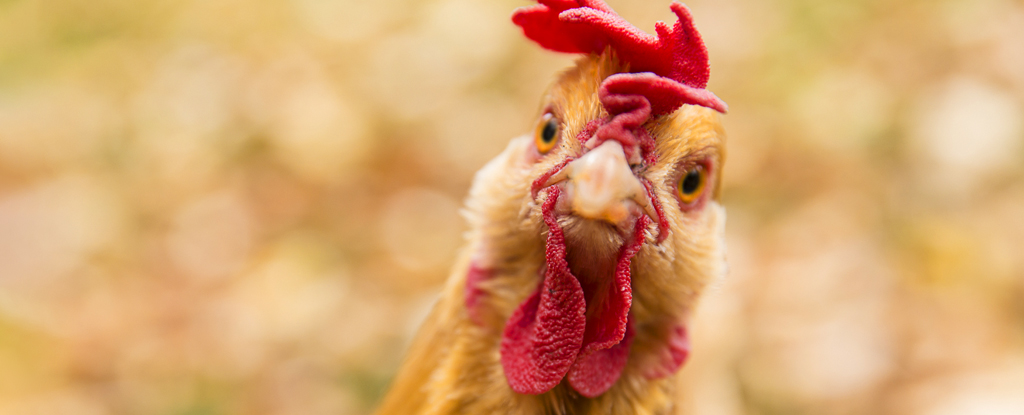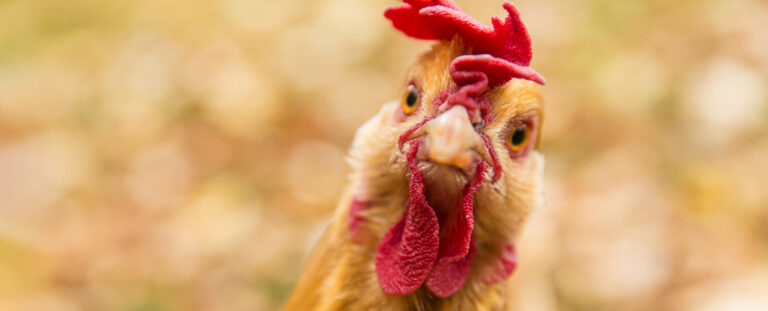
Along with a disgruntled squark, some chickens also blush when you swoop down and scoop them up. A new study suggests that as in humans, this facial skin redness is an indication of an aroused emotional response.
Previous research has demonstrated facial redness can indicate arousal states in birds like macaws and vultures, so University of Tours ethologist Delphine Soulet and colleagues examined this trait to see if it’s also an indicator of emotional states in chickens (Gallus gallus domesticus).
Six Sussex hens were filmed in different scenarios, some natural and others during different controlled activities. These included exciting and rewarding scenarios like dustbathing and being fed mealworms, and fear-related states like being captured and restrained.
With the aid of thousands of stills taken from footage of the chickens, and a specially-designed algorithm the researchers analyzed the level of redness of their comb, cheek, ear lobe, and wattle (the dangly, under-chin skin flaps) during these different scenarios.
“Although our findings are preliminary due to a small sample size,” explain Soulet and team, “they hint that less redness in the cheek and ear lobes may indicate calm and contentment states.”
In contrast, more facial redness appears to indicate higher emotional arousal, including excitement when encountering a favored food like mealworms, or fear.
Soulet and colleagues also gradually exposed 13 Sussex hens to the presence of an experimenter over a five week period while another 12 were left alone.
“Habituated hens exhibited significantly lower fearfulness and facial skin redness in the presence of humans compared to non-habituated hens in the reactivity to human test,” the researchers note.
“We propose that changes in facial skin redness reflect variations in affective states and can be used as a marker for assessing the quality of the human-hen relationship.”
With some further research facial redness could become a powerful indicator of chicken welfare. It could also be useful in interpreting social interactions and hierarchies between individual birds – something the researchers are keen to explore as well. Despite being as cognitively, emotionally, and socially complex as many other birds and mammals, chickens are often misperceived as unintelligent.
As written in The Little Prince: “You become responsible, forever, for what you have tamed.”

